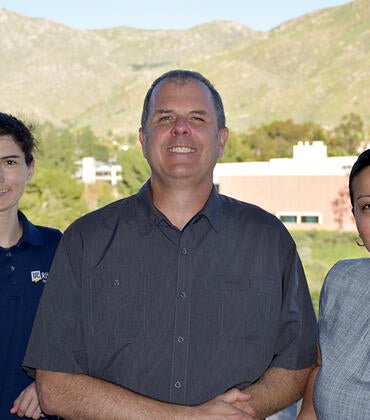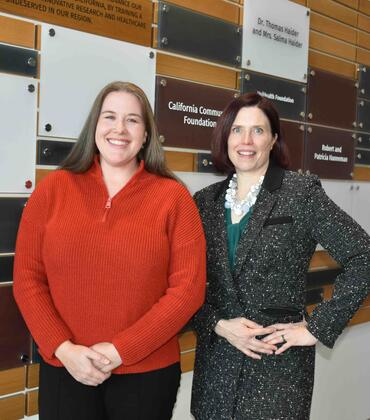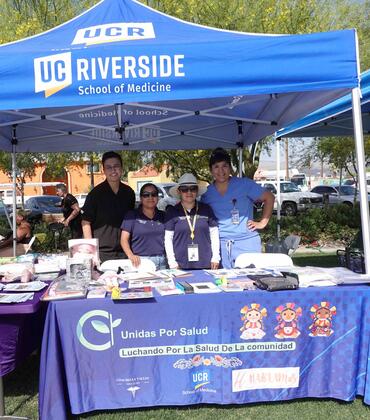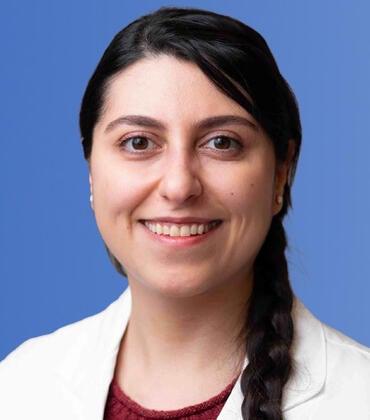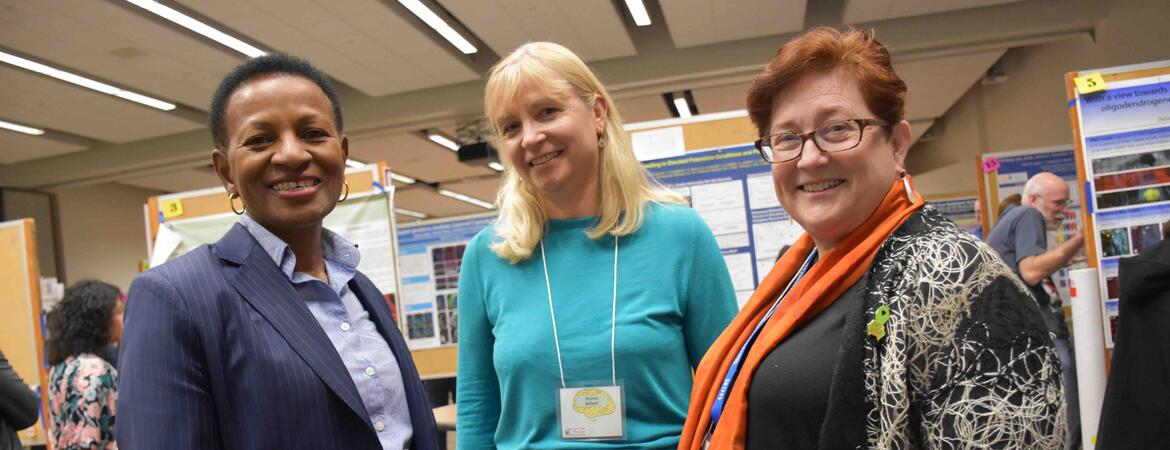
As a postdoctoral researcher, Emma Wilson, PhD, a professor of biomedical sciences at UCR and associate dean for Graduate Division, recalled being in a male-dominated science environment. “I think at the time, I wasn't fully aware of what a boys club I was in,” she recalled. “I did well there, and I enjoyed my time a lot as a postdoc despite that lack of female support and faculty.”
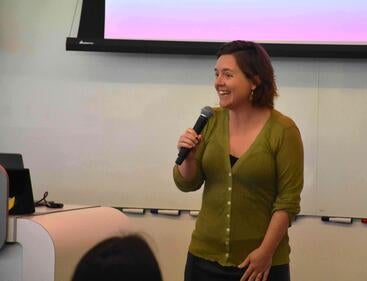
Her situation was common. According to the National Institutes of Health, although women earned just under half of all science and engineering doctoral degrees in 2014, they made up less than one-quarter of full professor positions in these areas in 2015.
Yet when Wilson came to UCR in 2008, things were different. After having no female faculty in her department for most of her time in her previous position, Wilson became part of a biomedical sciences department led by a woman and full of other female leaders and faculty. Currently, 10 of the 25 biomedical sciences faculty members are women, and half of those 10 hold leadership positions.
“Moving to UCR was really fantastic, with a lot of great strong female role models for myself,” Wilson said, calling the experience a “revelation.” “Moving here, I realized how helpful it is to have people that have been through similar things as myself and have similar outlooks on the world.”
Supporting female faculty
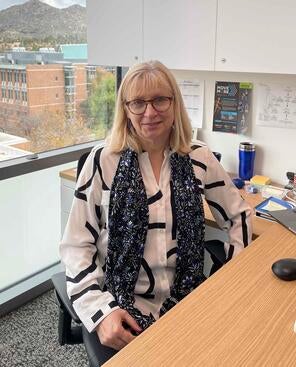
The division of biomedical sciences at UCR didn’t always have the gender balance that it does now. When Iryna Ethell, PhD, associate dean of academic affairs, joined the university in 2002, she was just the third female faculty member in the department. Ethell recalled a man among the senior faculty suggesting to another female professor that the professor teach about the reproductive system because she was pregnant at the time.
As the school began recruiting more female faculty, Ethell said, she’s seen increased understanding of women’s issues among men in the department. Wilson, too, observed that the now high ratio of women faculty has appeared to increase men’s understanding and support of their female colleagues.
Besides respect and understanding among colleagues, policies including diversity in hiring, sexual harassment reporting mechanisms, work flexibility, and programs to support caregiving needs are essential for supporting women in science. Wilson experienced some of these issues when she had two children as an associate professor at UCR. “Childcare is a major issue, and balancing that and getting tenure is a very stressful process,” she explained. “But because there's many female faculty here that have gone through the same thing at various different times of their lives, I felt very supported and also had the support of all my colleagues.”
Seeking a women-friendly environment
Recent graduate Samantha Sutley-Koury, PhD, looked for this sense of support and representation when choosing a doctoral program. “You hear horror stories about young female graduate students going and being in those environments where there is a lot of sexism still, and so I was looking for an environment that wouldn't have that,” said Sutley-Koury, who worked in Ethell’s lab. “I was really excited to come to UCR and to be able to have this strong leadership by women in science.”
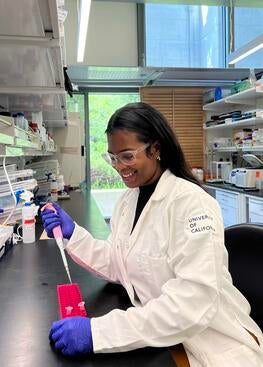
Sutley-Koury noted that women are a minority in science, and said she sometimes felt written off during her undergraduate years. “Just like any other minority group, having representation and having enough people with a seat at the table to advocate for you, I think has really made a difference,” she said. “Also having a mentor that understands some of the challenges you can have as a woman relieves the burden of worrying how you're perceived.”
Another 2024 biomedical sciences graduate, Keziyah Yisrael, PhD, also found inspiration in the department’s female faculty.
Yisrael recalled seeing recent female graduates become assistant professors alongside longtime researchers like Monica Carson, PhD, chair of the division of biomedical sciences and S. Sue Johnson Presidential Endowed Chair in Glial-Neuronal Interactions. “Being able to see that and know that those things are attainable and things that we have access to and is possible has been absolutely amazing to see,” Yisrael said. “We have a lot of powerful women in biomed and are very much female led.”
Yisrael’s experience in the department, she said, taught her to stick with and push her ideas. “We have just as much say and knowledge and everything else as any other person or man in the field,” she said. “As long as you're strong and confident, you can do anything.”
The female leadership in biomedical sciences also attracted Meera Nair, PhD, associate dean for biomedical research, to UCR. In fact, Nair said that Wilson was one of the reasons she joined the department in 2012. “I could see that [the female faculty] were really respected and empowered, so that was really inspiring,” Nair said. “Our dean is a woman, and we embrace diversity and equality. And that's really important in terms of collaboration to feel like that you can make a difference, and that your colleagues respect you and you respect your colleagues.”
Supporting women over the next 50 years
As the biomedical sciences department continues to grow and develop, including celebrating its 50th anniversary this year, Wilson said she hopes they maintain a focus on supporting junior faculty—particularly women. “Making sure that everybody is as well supported as I was is very important,” she said, adding that the effort requires continuous work. “Our assistant professors, and our female assistant professors particularly who have lots of decisions to make at that time [as they age], they have to feel supported at all times,” Wilson said.
Still, Wilson encouraged other women to pursue a science career, especially at UCR. “This is a really flexible job compared to many,” she said, noting the existence of university childcare and other programs to support women. “I think biomedical sciences is in an exciting time and exciting place to be, and I love the fact that we have a lot of good role models and very supportive male and female faculty in the division.”
